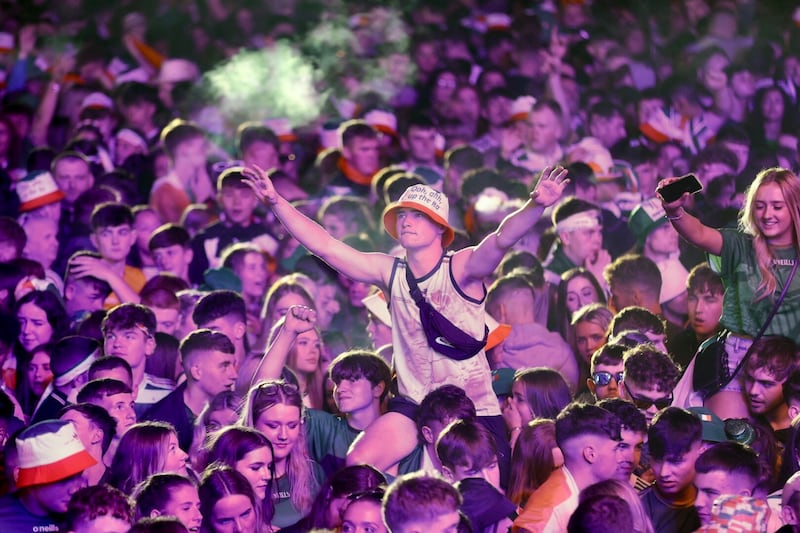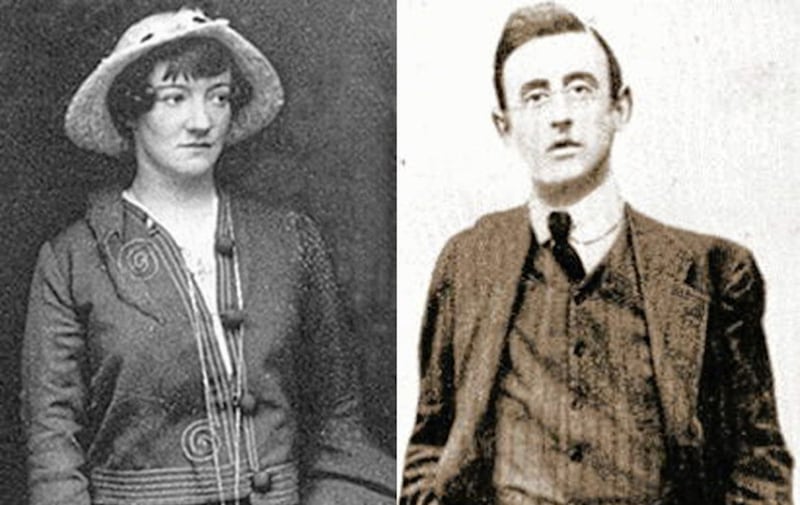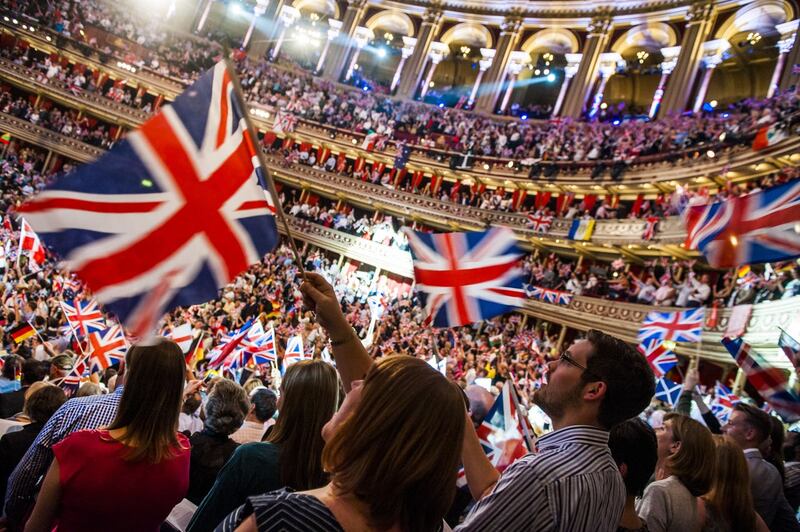If this is August, it must be time for the annual political row over the Wolfe Tones’ concert at Feile an Phobail.
DUP indignation at “Ooh, ah, up the ‘RA” will be followed by Sinn Féin’s reciprocal indignation that it is all a bit of harmless fun.
Having performed their normal summer duty, both parties can return to that privileged position of power without responsibility, which sectarianism gifts to political parties here.
So, is it rather harmless, or does “Ooh, ah, up the ‘RA” indicate support for political violence? Indeed, are what might be termed “rebel” songs still appropriate today, or should they be quietly discarded on history’s dusty shelves?
The offending song is Celtic Symphony, which apparently celebrates Glasgow Celtic. Its peculiar lyrics refer to travelling overseas and “waltzing with the natives”. Hardly the most appropriate language in this of all weeks.

Despite that exception, many Irish ballads might be seen as emotional reflections on various events in our history. For example, The Foggy Dew contrasts those who fought in 1916 with the Irish who fought for the British Empire in the First World War.
Written by Rev Charles O’Neill, parish priest of Kilcoo and later Newcastle, it says: “Twas better to die ‘neath an Irish sky than at Suvla or Sud-El-Bar.” They were two battles in which the British and Australians suffered massive casualties.
Skibbereen is a lament for the Great Famine. Slievenamon combines personal romance with the aspiration of having a national flag, and Grace is about Joseph Mary Plunkett’s marriage to Grace Gifford, hours before his execution. Hardly the sort of subjects to cause offence.

Banna Strand laments the capture of Roger Casement in Kerry in 1916. It should contain more regret than lament, since Casement could easily have been rescued from Tralee RIC barracks, while he was later walked to the railway station, or while guarded by only one RIC officer on the train to Dublin. Irish ballads do defeat better than practicality.
You might regard those and similar songs a bit mawkish, reflecting an Irish pre-occupation with the past. However, Britain enjoys something similar.
At the Last Night of the Proms, the audience waves union flags while singing Rule Britannia. That anthem claims that when Britain first arose from the sea, guardian angels sang that Britannia should rule the waves.
Presumably the countries which Britain invaded (it has fought in 171 of the world’s 193 countries) had no guardian angels. In deploying the distribution of angels in that way, God is arguably pro-British, or maybe even fully British.

A similar religious theme underpins Jerusalem, which wonders if Joseph of Arimathea ever walked in “England’s green and pleasant land”, either alone or with Jesus. So Jesus may have been pro-English, rather than pro-British.
Thus we might reasonably regard at least part of the Last Night at the Proms as a sort of “Ooh, ah, up Britannia”.
The irony of these two musical events in Belfast and London is that both are delusional. Britannia no longer rules the waves. Its latest aircraft carrier has had to be towed back to port and Britain’s army is seriously understrength. There were about 10,000 more people in Croke Park to see Armagh win the All-Ireland than there are in the entire British military.
Today Britain would have difficulty invading the Isle of Man.
- The Wolfe Tones and Celtic Symphony: Why is the song contentious?Opens in new window
- Wolfe Tones singer says 'people are allowed to have their heroes' amid continuing Féile controversyOpens in new window
- Jamie Bryson: When it comes to bonfires and flags, unionism can learn from the Wolfe TonesOpens in new window
Those chanting “Up the ‘Ra” are equally delusional. The ‘RA lost every war it fought and today Sinn Féin, which supported IRA violence, lays a wreath annually commemorating those who shot Mary Joseph Plunkett.
The Foggy Dew claims that had the Irish in Britain’s army died by Pearse’s side, they would be honoured today. They are honoured today – by those who claim direct political descent from Pearse. The foggy dew is a lot foggier these days.
In one sense, the events in Falls Park and the Royal Albert Hall are harmless. However, they might also be viewed as occupational therapy for the masses to divert from social and economic reality.
If this is August, it must be time for the annual political row over the Wolfe Tones’ concert at Feile an Phobail
You can decide for yourself if they represent patriotism, or just narrow nationalism. Confusing the two gave us 30 years of war.
Of course, neither concert considers the brutality of violence. The British Empire killed an estimated 100 million people through famine in India between 1880 and 1920 and the ‘RA killed about 600 civilians here during the Troubles.
If both audiences paused to reflect on the inhumanity of what they are celebrating, they could achieve a truth and a dignity which would make both events more sobering occasions.








